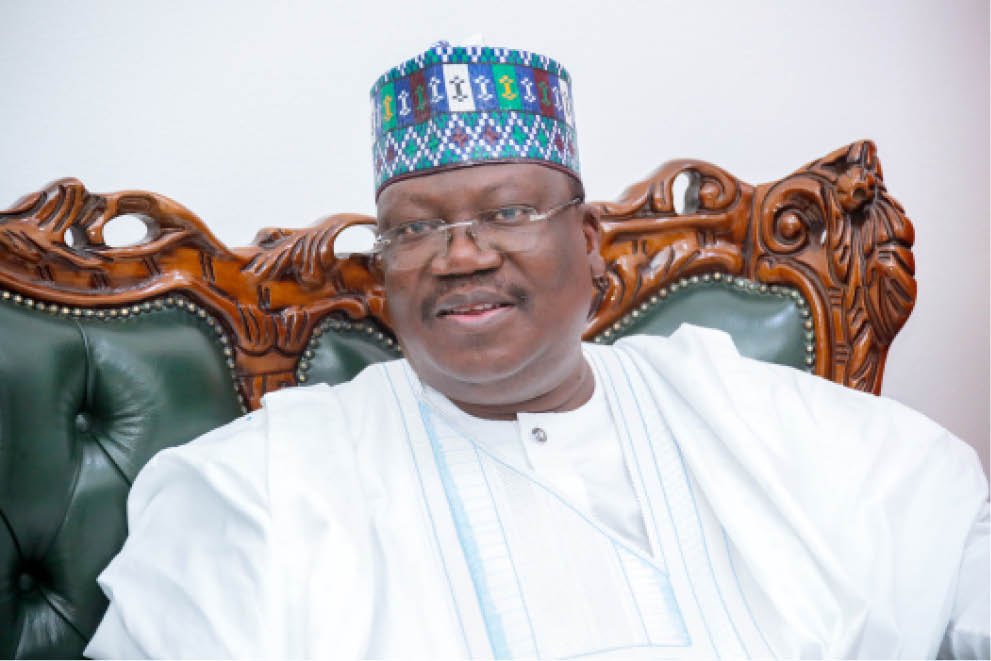By Abdul Usman, Abuja
Today marks the first anniversary of the ninth Senate which was inaugurated on June 11, 2019, following President Muhammadu Buhari’s letter of proclamation. Since the inauguration, the Red Chamber under the leadership of Senator Ahmad Lawan has witnessed a placid legislative environment uncharacteristic of a federal parliament.
Not only has Lawan’s Senate presidency been peaceful, its relationship with the executive is also rancour-free. During President Muhammadu Buhari’s first term, the executive was embroiled in a power tussle with the legislature that slowed government, including confirmation of appointments.
The chumming legislature-executive relationship has attracted mixed reactions, with critics euphemistically calling the 9th Assembly a “rubber stamp” for speedily endorsing federal government requests.
CRITICAL BILLS PASSED
The first bill to be passed was the Deep Off-Shore and Inland Basin Production Sharing Contracts Act CAP D3 LFN 2004 (Amendment) Bill, 2019 which President Muhammadu Buhari, on November 4, 2019, assented to and signed into law.
The Senate president said the amendment was to get a better deal for Nigeria from its endowment. The Senate also passed the Finance Bill 2019 on November 21, 2019.
The bill amended seven existing tax and fiscal policy laws (Companies Income Tax Act, 2004; Value Added Tax Act, 2007; Customs and Excise Tariff (Consolidation) Act, 2004; Personal Income Tax Act, 2007; Capital Gains Tax Act, 2007; Stamp Duties Act, 2007; and Petroleum Profit Tax Act, 2004). Its objective is to reform Nigeria’s tax system for enhanced implementation and effectiveness.
One of the biggest achievements of the 9th Senate is the passage of the Appropriation Bill before the New Year, thus paving the way for the realignment of the fiscal year to the January to December budget cycle. The passage, the earliest in many years, was seen as a big boost to effective budget implementation. The 9th Senate also passed three Public Procurement Act 2007 (Amendment) Bills, 2019. Aside the bills passed, 185 bills have also gone through the first reading, while 32 other bills have passed second reading and are before the relevant Senate committees for the necessary legislative work. The Petroleum Industry Bill (PIB), Electoral Reforms Amendment Bill and Amendment of the 1999 Constitution are among the important legislative works awaiting the Senate’s attention.
LOAN APPROVALS
The speed with which the 9th Assembly approved President Muhammadu Buhari’s loan requests attracted condemnation from different quarters. The Senate had, in March this year, approved $22.79bn external loan request for Buhari to finance critical infrastructural projects in the 2020 budget. In April, the National Assembly approved N850bn domestic loan request of the president to finance projects in the 2020 budget. The loan, according to Buhari, was needed to replace previously approved external loans, as the conditions from the international capital market were not conducive for borrowing. Again in May, the federal lawmakers approved another external loan request of $5.513bn for the president to fund the revised 2020 budget deficit. Many Nigerians have, however, cautioned against worsening the debt profile of the country. Before approval was given for the $22.7bn loan, the seeming unity among the lawmakers in the Red Chamber was weakened during the debate. Senators were locked in heated arguments regarding the procedure to be adopted, which degenerated into a stalemate that forced the Senate into a session behind closed doors. Despite the back and forth arguments, the Red Chamber okayed the loan requests .
CONFIRMATION OF NOMINEES
The 9th Senate has made 27 confirmations, including those of the Chief Justice of Nigeria, ministers, Chief Judge of the Federal High Court, President of the National Industrial Court of Nigeria and chairmen and members of eight commissions, services and corporations.
While the Senate leadership said the quick confirmation of the nominees was to ensure timely implementation of government policies, critics, however, called for caution. Nigerians were stunned when the Senate, last year, screened all the 43 ministerial nominees in five days. It took the 8th Senate 30 days to conduct the screening of 36 nominees.
CISLAC REACTS
The Executive Director of the Civil Society Legislative Advocacy Centre (CISLAC), Auwal Musa Rafsanjani, said that the ninth Assembly had neither mapped out specific legislative oversight to block financial leakages nor improved its oversight function on monitoring revenues accruing to the government from other revenue streams apart from the oil and gas sector
Rafsanjani said, “We are yet to witness significant effort by the National Assembly towards amendment to the Electoral Reforms Act; an appropriate legislative framework to improve coordination and result-oriented approach in anti-corruption fight through full domestication of Pending Global and Regional Anti-Corruption Instruments; review of Petroleum Industry and Governance Bill (PIGB) to promote transparency, accountability and governance, as well as curtail monumental financial losses in our nation’s oil and gas sector.” With three more years to go, Nigerians are watching keenly to see how the ‘romance’ between the National Assembly and the executive will impact law-making and lives of the masses.
Source: DailyTrust

